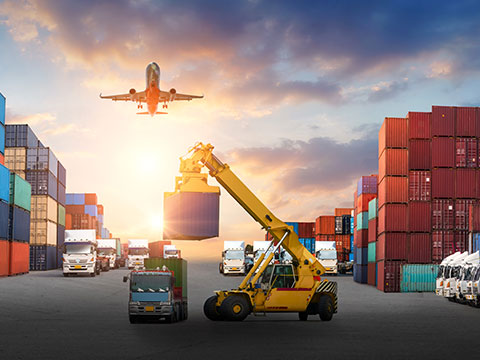The Transforming Logistics Delivery for Instantaneous Service across the Globe
In our rapidly evolving global economy, logistics play a pivotal role in facilitating the movement of goods and services across vast distances. However, traditional logistics systems often struggle to keep pace with the demands of today’s instant-gratification culture. The need for faster, more efficient delivery solutions has become increasingly apparent. Enter the era of transforming logistics, where instantaneous service across the globe is not just a possibility but a reality. One of the key drivers of this transformation is technology. Advanced tracking systems, real-time data analytics, and artificial intelligence have revolutionized the way we manage logistics. With the advent of GPS technology and sophisticated routing algorithms, companies can optimize delivery routes, minimize delays, and provide customers with accurate delivery estimates. Furthermore, the integration of machine learning algorithms allows logistics companies to anticipate demand patterns and adjust their operations accordingly, ensuring that goods are always available when and where they are needed.

Another crucial aspect of transforming logistics is the adoption of automation. From autonomous vehicles to drones, automation has the potential to streamline the delivery process and reduce human error. Autonomous vehicles, equipped with sensors and cameras, can navigate through traffic and congested areas with ease, delivering goods faster and more efficiently than traditional delivery methods. Similarly, drones offer a swift and cost-effective solution for delivering packages to remote or inaccessible locations, bypassing traffic and infrastructure limitations altogether. Furthermore, the rise of e-commerce has spurred innovation in last-mile delivery solutions. Companies are experimenting with alternative delivery methods such as Crowdsourced delivery and locker-based systems to address the challenges of delivering goods to densely populated urban areas. Crowdsourced delivery platforms leverage the power of the gig economy, allowing individuals to earn money by delivering packages in their spare time. Meanwhile, locker-based systems provide customers with a secure location to pick up their packages at their convenience, eliminating the need for traditional home delivery altogether.
In addition to technological advancements, sustainability has emerged as a key focus area in transforming logistics. With growing concerns about environmental impact, companies are increasingly looking for ways to reduce their carbon footprint. Electric and hydrogen-powered vehicles are becoming more prevalent in delivery fleets, offering a cleaner and more sustainable alternative to traditional diesel-powered vehicles. Furthermore, the optimization of delivery routes and the use of alternative transportation modes such as bicycles and electric scooters help reduce emissions and congestion in urban areas. Moreover, the freight company has accelerated the shift towards transforming logistics. With lockdowns and social distancing measures in place, the demand for contactless delivery options has surged. Companies have ramped up their efforts to implement contactless delivery solutions, such as no-contact drop-offs and contactless payment methods, to ensure the safety of both customers and delivery personnel. Additionally, the pandemic has highlighted the importance of resilience and flexibility in supply chains, prompting companies to invest in technologies that enable real-time visibility and agility in their operations.